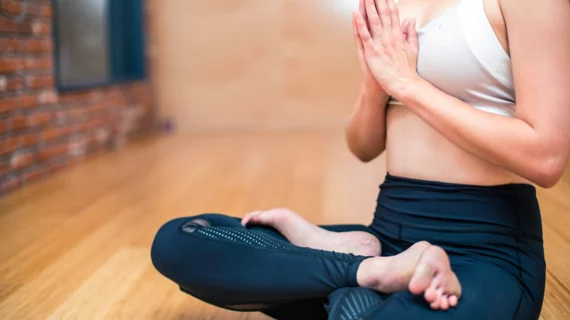Exercising while social distancing: recommendations in the face of COVID-19
Efforts to limit the spread of the new coronavirus have made all of us extra cautious and familiar with the concept of social distancing—but that doesn’t mean all exercise has to be put on hold.
The American Heart Association (AHA) has shared recommendations for staying fit during this unusual moment in history, including advice for working out in public and from home.
When gyms are open
When public gyms are still open and available to use, the AHA advised, it is important to remember that certain gym equipment—including medicine balls—attract germs and, yes, even viruses. Cleaning equipment does make a difference, but the job must be thorough and precise; the key is to be as careful as possible.
“You can only take care of yourself, and you can only guarantee what you do yourself,” Steven Zinder, an associate professor of athletic training at the University of North Carolina Wilmington, said in the AHA report. “There's no reason that you can't wipe down the machine before you use it. And there's no reason that you can't be bringing your own towels, your own water bottles, your own yoga mats.”
When gyms are closed
More and more social distancing policies are now recommending people stay at home unless absolutely necessary, and many gyms throughout the United States have closed their doors as a result. Even in those cases, however, it is still possible to get in an effective workout.
“The only limiting factor in working out at home is creativity,” Zinder said. “And these days, you don't even have to be creative. You just have to have an internet connection. Because there are so many videos and so many programs that you can download.”
Steve Collett, an exercise physiologist and health coach, noted in the same report that people should continue communicating with their personal trainers.
“If they can't come in and physically see you, at least they can touch base by phone or by text so that they know that they're still there,” he said. “We're still going to help them, and they're still accountable.”
Collett also noted that, no matter what else is going on in the world, people should remember to practice good nutrition, get enough sleep each night and continue to exercise.
“The people who have strong immune systems have a far better chance of fighting off any type of disease or virus than someone who does not follow those principles,” he concluded.

